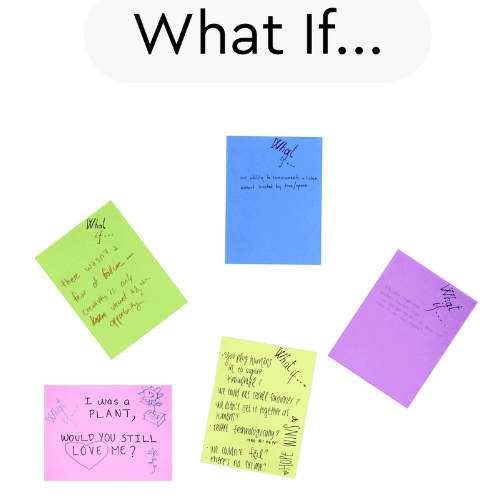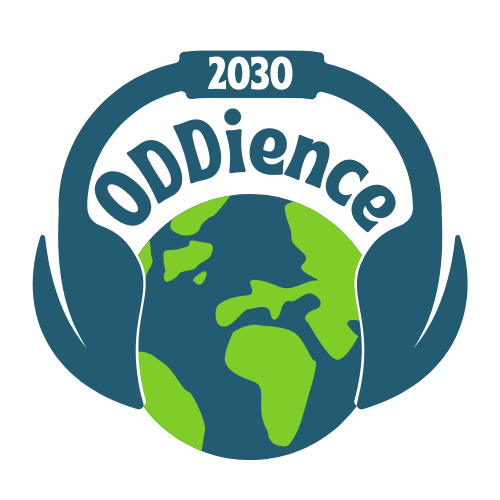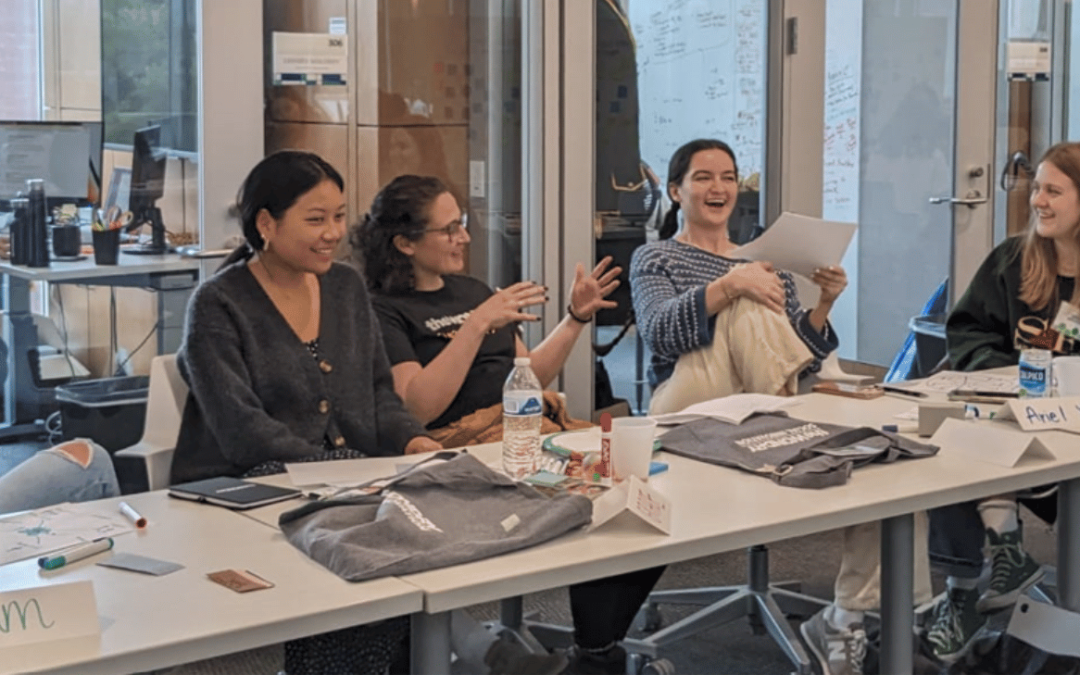By Andreea Gatman, Act On Learning
Teaching with Climate change: Hope as capacity of multiple ways of knowing
“A lack of hope is stealing young people’s right to imagine futures” (Paulo Freire, Pedagogy of the Heart)
“Give young people, space for their voice.” (Abigael Kima African Youth caravan representative, COP28, Dec 2023)
We invited students’ team leaders at Wond’ry Center for Innovation, to future(s) anticipation. As we had one toolkit called “hope cards” we approached what Karen O’Brien, Noble Prize winner for her work in the Intergovernmental Panel on Climate Change (IPCC) called the capacity to build multiple ways of knowing. O’Brien with her quantum social change approach to climate and sustainable development goals, talks about hope as a process that allows insights ( a fresh new perspective, bypassing our habitual patterns of thoughts), and once we practice that we back it up with scientific and critical thinking.
Unesco with the Agenda of Futures Literacy defined future anticipation as “the competency that allows people to better understand the role of the future in what they see and do.” It is also key competence in finding ways to “make space in men’s and women’s minds for peace”.
Hope cards
Peace and hope are directly linked, as both create space to allow our actions to be informed by the future that emerges, instead of habitual thinking, that is why from a quantum perspective O’Brien calls it “you matter more than you think”.
Playing the hope cards, inviting surprising themes (some declared awkward, unfamiliar) in unexpected situations and from very different points of view (perspectives) our habitual patterns of thoughts “easily” can be bypassed (what David Bohm called proprioception, key for thinking and learning to learn skills).
As I hear students bring up the topic of power and dynamics of power relations, I am thinking how in 21st-century transversal competencies instead of talking about power bring the idea of agency: our image of how as humans affect and influence the world, inform how we think and act (relational systems thinking individuals, collectives, systems).
What students learn with future(s) anticipation practices
When difficult/conflictual situations, we can widen perspectives (not shortcutted by our habitual thinking) with the practice of “there can be many different perspectives”.
Practices of open questions, inviting future thinking, fresh new ideas, becoming “artful communicators” (Thomas Hubl) building bridges and allowing data to inform our actions instead of only “picking” data that our brain already picked for us to notice( O’Brien, 2021)
Creating an image of leadership in the classroom, horizontal relations not hierarchical, allowing one (the learner) to achieve clarity, essential in a world of paradoxes, or what in education are called wicked problems.
Practicing agency, inherent motivation for the learning in 21st-century schooling to actually happen.
Empathy and compassion skill, of suspending own thoughts and theater of emotions(Lonka, 2018) to actually be able to listen to a diverse point of view, and inform actions as well as relational systemic thinking essential for learning to learn.
What If posters
After the hope cards, we imagined futures together creating What If posters to build a space that allows Future(s) to be sensed, seen…

Resources:
Hope Cards
ttps://www.sitra.fi/en/topics/weak-signals/#weak-signals-2022 (you can create your own hope cards based on your context of bioregionalism)
Create alternative futures with “what if…”
– Here is one example from Helsinki Design Museum material for teachers https://www.designmuseum.fi/wp-content/uploads/2020/04/Task-material-for-teachers_What-if-Alternative-Futures.pdf
– Here for students https://www.designmuseum.fi/wp-content/uploads/2020/04/Task-A-a-school-day-in-2050_print.pdf

